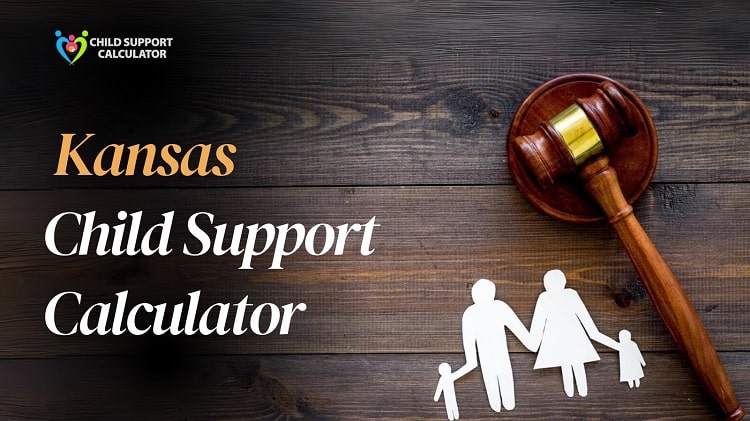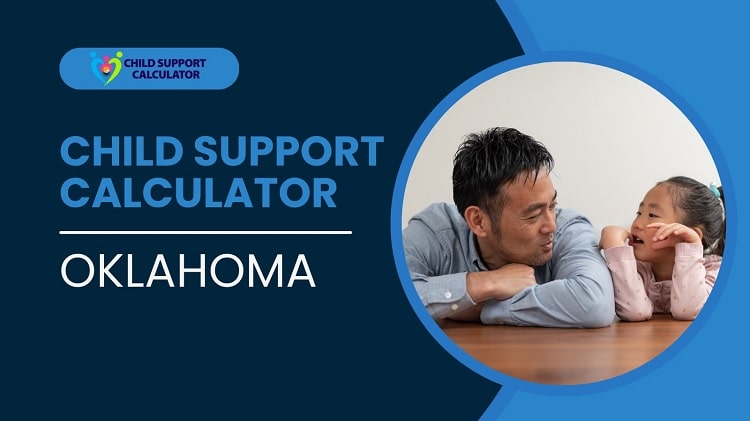Alimony In Wyoming
In a nutshell, the Wyoming Court grants alimony or spousal support to either spouse based on their ability to pay. Real estate or real estate profits may be ordered to be given to the other partner as spousal maintenance for the rest of their lives.
When deciding on alimony in Wyoming, the court does not take into account marital fault.
When one parent’s needs necessitate spousal assistance or alimony, Wyoming law permits it. At the divorce hearing, the judge rules evidence and decides what is suitable on a case-by-case basis. The court decides on alimony, considering the parties’ circumstances.

Any substantial specified event may cause a support arrangement to be changed. Parties must ask the court and present proof of the changed situations in order to request modification or termination. The court decides whether or not to change the agreement after a hearing.
The duration of the support varies a lot. It can be paid in one single sum or in monthly installments over a short or lengthy period of time.
While the case is pending, and alimony has not been determined, the court may grant temporary alimony.
The court has the authority to review either party’s case and change the amount that must be paid. This usually occurs when the payor’s income falls below a certain threshold.
If the spouses mutually disagree with the court and decide on the conditions of alimony for themselves, the court may be discharged. This implies that the spouses make the decision rather than the judge. The court can summon either party to court at any time and order monetary security (in any amount) from the payor in this routine.
Support payments may be deducted from federal taxes by the paying party. Such payments must be claimed as income by the recipient.
Spousal Support In Wyoming
The quantity of alimony in Wyoming is not determined by a formula but rather by the court’s judgment of what is reasonable in light of each spouse’s financial circumstances. Payments are classified into four categories:
Temporary Alimony
During the protracted divorce process, an economically dependent spouse might request temporary support to help meet financial responsibilities. If a need exists, either spouse can get temporary alimony, which lasts until the divorce is finalized by the judge.
Short-term support
Short-term alimony may be necessary for some spouses to help a lower-earning spouse transition to a new post-divorce standard of life. A judge may award short-term support to enable the recipient to get till the spouse becomes self-supporting if the spouse has relevant job skills or education and can find work.
Rehabilitative alimony
In Wyoming, this is the most frequent sort of assistance. Rehabilitative support is ideal for spouses who are capable of self-sufficiency but require time and financial assistance to obtain the education or job skills needed to find employment that would allow them to be financially independent of their former spouse.
Permanent support
Due to advanced age, poor health, or a lack of education or employment skills, a spouse will be unable to remain independently wealthy. Permanent assistance is usually reserved for extreme conditions and long-term marriages.
Qualifying for Spousal Support in Wyoming
The decision on alimony does not have to be made by a judge. The judge will evaluate and sign a settlement agreement if a divorcing spouse tries to negotiate the parameters of a support order and submits it to the court. If the couple is unable to make a decision, the judge will initiate a support assessment.
In Wyoming, there is no formula or tool that can be used to determine how much alimony a court will order. Alternatively, the court might think about:
- The requirements of the spouse who is seeking assistance.
- The ability of the paying spouse to pay while remaining independently wealthy.
- The duration of the union.
- The alimony-seeking spouse’s educational and job skills.
- Any other element that the court deems important
Any alimony award should have the purpose of ensuring that neither spouse suffers financial hardship as a result of the divorce. The court will not utilize alimony to “punish” a partner who has been unfaithful during the marriage, nor will it discriminate against a spouse because of their gender. According to Wyoming law, a judge must give alimony provided the ruling is “just and equitable”—that is, it must be reasonable to both spouses.
How the Court Calculates Alimony
There is no equation or tool that will tell you how much alimony you will receive or pay. Payments are determined by the requesting spouse’s need and the paying spouse’s ability to pay. However, the court has a lot of discretion when it comes to alimony, as long as it is reasonable and fair.
To confirm the amount, the court can order alimony payments as part of the property distribution (including a spouse’s individual real estate properties, rentals, earnings, or other income).
For example, suppose your spouse asks for alimony, and you have separate property. For example, you may have purchased a condominium while still single and kept it as a rental property during your marriage. If this is the case, the court may order you to pay alimony to your spouse by allocating rent or profits from that property to your spouse.
Duration of Alimony
Only during the judicial process of divorce is temporary alimony possible. Temporary alimony ends when the divorce is finalized by the judge, and post-divorce support (if granted) commences. Depending on the circumstances, judges can order payments to be made for a short or long length of time.
Unless the couple decides otherwise, alimony ends when one of the spouses passes away.
Modifying The Terms Of Alimony
Except through a request for modification, can the court amend the terms of alimony payments? The paying spouse can only quit paying alimony payments if the term has expired or the receiving spouse has died without filing a modification request.
Changes in the length and quantity of payments may be given in the event of a change in circumstances, such as a job loss or the beneficiary spouse’s marriage. Even if both couples freely agree to change or stop making payments, the paying spouse is legally obligated to do so.
Remarriage and Terminating Alimony in Wyoming
In Wyoming, alimony is not immediately terminated if the supported spouse marries again. However, if the sponsored spouse remarries during the support period, the paying spouse can petition the court for an alimony review. Only if the remarriage is accompanied by a material and significant change in status would the judge discontinue the judgment.
Couples who negotiate the terms of an alimony judgment in a settlement agreement are unable to ask a court to modify the agreement afterward. If you and your spouse agreed to pay alimony to your partner for six years and your agreement does not address what happens if the supported spouse remarries, you will most likely have to pay support for the full six years.
The disadvantage of these arrangements is that the contributing spouse may be forced to continue making payments even if the court would have ordered them to stop. For example, in a separation agreement, a spouse agrees to pay alimony for ten years. However, if the receiving spouse does not return after five years, the paying spouse may still be compelled to continue making payments for the remaining ten years.
As a result, if you are the paying spouse and are utilizing a divorce agreement to determine the duration and amount of alimony payments, make sure to include details about what would happen if your spouse remarries.
What Role Does Adultery Play in a Wyoming Divorce
Many states allow you to request a divorce solely on “fаult.” In other words, a “guilty spouse” has engaged in some type of “marital misconduct” that has caused injury to the “innocent spouse.” As a result, the judge grants the divorce on that grounds.
For instance, the Innосеnt spouse can file for divorce based on physical violence. If the judge is persuaded by the innocent spouse’s case, he or she will grant a divorce that legally reflects that the marriage ended because the guilty partner was absconding.
Wyoming, on the other hand, is a “no-fault” state. In Wyoming, one or both spouses must convince the court that they have “recognizable issues in the marital partnership” in order to get divorced. To put it another way, at least one partner must feel that the marriage has drifted apart to the point that the marriage can no longer be saved.
It doesn’t matter why or how they fell out of love; all that matters is that the relationship is no longer salvageable. (There is an uncommon exception to this rule: your spouse being considered “Inсurаblу insаnе.”)
In general, Wyoming courts are unconcerned about adultery and other fault grounds when deciding whether or not to issue a divorce. However, while deciding on alimony payments, they can and do consider adultery and other causes of fault.
Alimony and Taxes
Prior to the modification in the alimony tax rules, an ex-spouse paying alimony could claim alimony payments as a tax deduction. Alimony payments may not need to be reported as taxable income by the receiving spouse.
These provisions are no longer in effect as of 2019. Receiving spouses will need to include their received alimony in their total taxable income while paying spouses will no longer be allowed to deduct alimony payments as a tax deduction under alimony in Wyoming.
Many couples rushed to finalize their divorce before the December 31, 2018, deadline to avoid these changes to alimony agreements. If you and your spouse filed for divorce after late 2018, your alimony arrangement would be subject to the new tax code.
Depending on how much alimony you pay or get, this change can have a significant influence on your payments. Higher alimony payments will increase a recipient’s net taxable income, thus increasing tax liability and resulting in a reduced annual tax return.
Faqs
What is Alimony Mediation?
When a marriage ends in divorce, both partners normally expect alimony payments from the other. As a result, spouses might decide on an alimony agreement through mutual consent or a lawsuit in Wyoming family court. They can usually hire a Wyoming alimony mediator to help the ex-spouses achieve an agreement on alimony and other difficult issues (like property distribution). They can avoid going to court on Thursday.
is there alimony in Wyoming?
The goal of alimony in Wyoming is to offer a post-divorce substitute for a spouse’s support throughout the marriage. The most common reason for alimony is to support and maintain a former spouse who is unable to effectively fend for himself or herself.
Can a wife get spousal support in Wyoming?
Although spousal support is not typically granted in Wyoming, marriages in which one spouse made a significant contribution of monetary capacity to the marriage may qualify for alimony from a judge. The court examines the income and assets of both spouses while deciding on alimony.
How is alimony determined in Wyoming?
A court in Wyoming family court depends on the length of the payments. Alimony is usually computed depending on the length of the marriage; for example, for every three years of marriage, one year of compensation is given (although this is not always the case in every state or with every court).
How much alimony does a husband have to pay?
The Supreme Court of India has established a benchmark value of 25% of the husband’s net monthly earnings as the amount that should be delivered to the wife if maintenance is paid monthly. Although there is no defined sum for a one-time settlement, it normally varies from 1/5th to 1/3rd of the husband’s net worth.
In what cases is alimony not given?
The husband may be exempt from paying alimony if the woman is found to be unfaithful. Because infidelity gives the opposite partner an advantage, the husband has the right to refuse to pay alimony if he can establish his wife is cheating on him.
What happens if my husband refuses to pay alimony?
When the court issues the order, the sustaining spouse is responsible for paying alimony within the time frame set by the court. If payments are not made on time, the court may take additional actions against the partner, such as imposing penalties.







